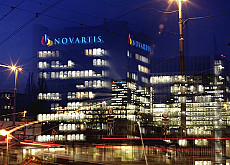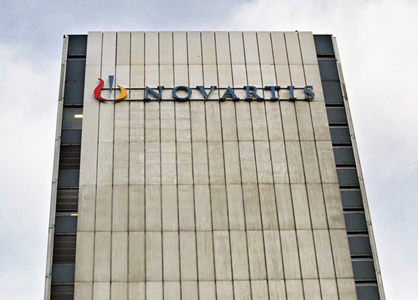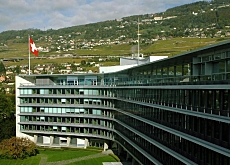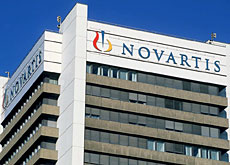Novartis painkiller banned after deaths

Australia's drugs regulator has banned the use of Prexige, a painkiller made by Swiss pharmaceutical giant Novartis, after the deaths of two patients.
Prexige was approved for use in Australia in July 2004 and is approved in more than 50 other countries. It is currently being rolled out in Europe – although not in Switzerland – and Novartis will file the drug for marketing approval in the United States later this year.
Australia’s Therapeutic Goods Administration (TGA) said it had received eight reports of serious liver side effects – including two deaths and two liver transplants – linked with the use of the drug, also known as Lumiracoxib.
“The TGA and its expert advisory committee, the Adverse Drug Reactions Advisory Committee (ADRAC), have urgently investigated these reports,” the TGA’s principal medical adviser, Rohan Hammett, said on Saturday.
“ADRAC has today recommended the cancellation of the registration of Lumiracoxib due to the severity of the reported side effects associated with this drug.
“The TGA has taken this advice to cancel the registration of Lumiracoxib in order to prevent further cases of severe liver damage.”
Hammett added: “It seems that the longer people are on the medicine, the greater the chance of liver injury. The TGA is, therefore, advising people to stop taking the Lumiracoxib immediately and to discuss alternative treatments with their doctor.”
The TGA also recommended that people taking Prexige have liver function blood tests.
Novartis would comply with the authorities, according to a spokesman, but it continued to believe the drug, which had modest sales of $52 million (SFr62 million) in the first half of the year, had a positive benefit-risk profile.
Prexige is taken by about 60,000 people in Australia and is prescribed for dysmenorrhoea, osteoarthritis and pain relief associated with dental and orthopaedic surgery.
Despite the developments in Australia, there were no plans to pull the drug elsewhere, the spokesman said, and the Basel-based company would also proceed to file the drug for marketing approval in the United States.
Setbacks
The spokesman said liver failure was a rare, but known, side effect of all drugs of the type that Prexige belongs to – so-called COX-2 inhibitors – as well as of other non-steroidal anti-inflammatory drugs.
COX-2s have been under a cloud since Merck & Co. withdrew Vioxx in 2004 after studies found it increased the risk of a heart attack. There have also been worries about other non-steroidal anti-inflammatory drugs.
Prexige had initially been seen as a blockbuster seller for Novartis, but analysts’ expectations collapsed after the Vioxx withdrawal, and there were doubts whether Prexige would ever win US approval.
Novartis has been plagued by a number of drug setbacks this year, delaying the launch of its diabetes drug Galvus because of safety concerns, and also evaluating the launch of a generic version of its Lotrel blood pressure treatment.
The group also cut its 2007 guidance after it withdrew bowel drug Zelnorm from US shelves in March.
swissinfo with agencies
Net profit: $7.20 billion
Full-year sales: $37.02 billion
Operating income: $8.2 billion
Created in 1996 through the merger of Ciba-Geigy and Sandoz, Novartis is currently organized into four divisions.
These are Pharmaceuticals (prescription medicines); Vaccines and Diagnostics, a new division focused on the development of preventive treatments and tools; Sandoz, (generic prescription drugs) and Consumer Health.
The name Novartis is derived from the Latin novae artes, meaning “new skills” and reflects the company’s commitment to research and development.

In compliance with the JTI standards
More: SWI swissinfo.ch certified by the Journalism Trust Initiative



You can find an overview of ongoing debates with our journalists here. Please join us!
If you want to start a conversation about a topic raised in this article or want to report factual errors, email us at english@swissinfo.ch.